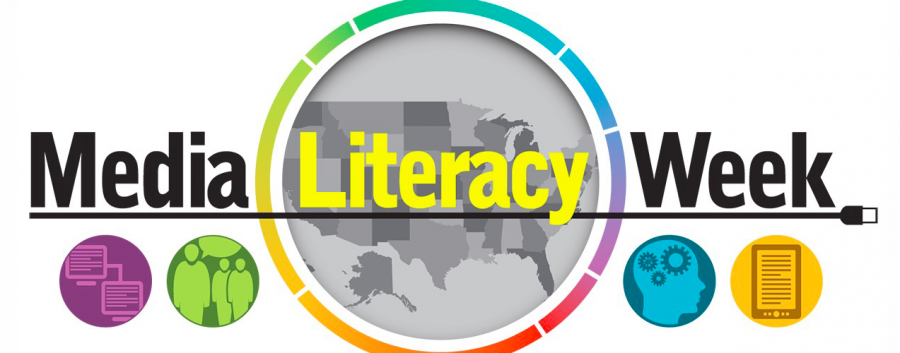Making News Literacy a Trending Topic
United States Media Literacy Week – Oct. 31 – Nov. 4, 2016
When asked, teenagers–high-schoolers and college students alike–will typically say that if they feel connected to the news at all, it’s through sites like Facebook, YouTube, Twitter and Snapchat. They will often say that they read the headlines and don’t click on the articles.
There is much to be concerned about in this scenario, but we as educators should take this opportunity to elevate the critical importance of news literacy in the classroom and beyond. When students admit to relying on social media platforms for their news and even then just by perusing the headlines, they often do so with embarrassment in their voices. They know they’re not getting the full story. But do they know they might not even be getting a real story?
Recently, Facebook has made headlines because of their headlines. The site used to employ human editors to curate the Facebook “Trending topics” sidebar. When Facebook was faced with criticism that these editors were biased in their recommendations, they decided to take the editors out of the equation. In August, they removed human editors and began relying on algorithms to choose trending topics.
“The Intersect” at The Washington Post researched the Trending topics, and after the algorithm takeover, between Aug. 31 and Sept. 22, found “five trending stories that were indisputably fake and three that were profoundly inaccurate.” They also found “that news releases, blog posts from sites such as Medium and links to online stores such as iTunes regularly trended.”
Showing this research to students opens up a myriad of possibilities for discussion: how to spot fake news sites, the difference between public relations/marketing and news, the power of social media to democratize information–for good and for bad, and what the perception of bias means in news media. These lessons about how easily fiction can be spread as fact can help students be more critical news consumers across all social media platforms.
The Facebook algorithm story also sends a strong and clear message about the importance of the role of a good journalist. Human beings cannot be replaced by algorithms when it comes to vigorously seeking, reporting, and disseminating news.
Young people should feel empowered to have the analytical skills to critically approach news, and they should also know what an important and powerful role they can aspire to as creators–both in student media and in their future careers.
Tips:
- To analyze news stories, have students use the Center for News Literacy’s “V.I.A.” system: Verification, Independence, and Accountability.
- Share this research, which shows that 44 percent of U.S. adults get news from Facebook.
- Ask students if they think adults have news literacy skills, and what the consequences could be for voters, teachers, lawmakers, or business owners to not have those skills.
Resources:
- Center for News Literacy – Stony Brook University School of Journalism
- “This is the news Facebook chooses for you to read,” by Abby Ohlheiser at The Washington Post
- “Facebook has repeatedly trended fake news since firing its human editors,” by Caitlin Dewey at The Washington Post
- Center for News Literacy: V.I.A.
- “News Use Across Social Media Platforms 2016” by Jeffrey Gottfried and Elisa Shearer at Pew Research Center



